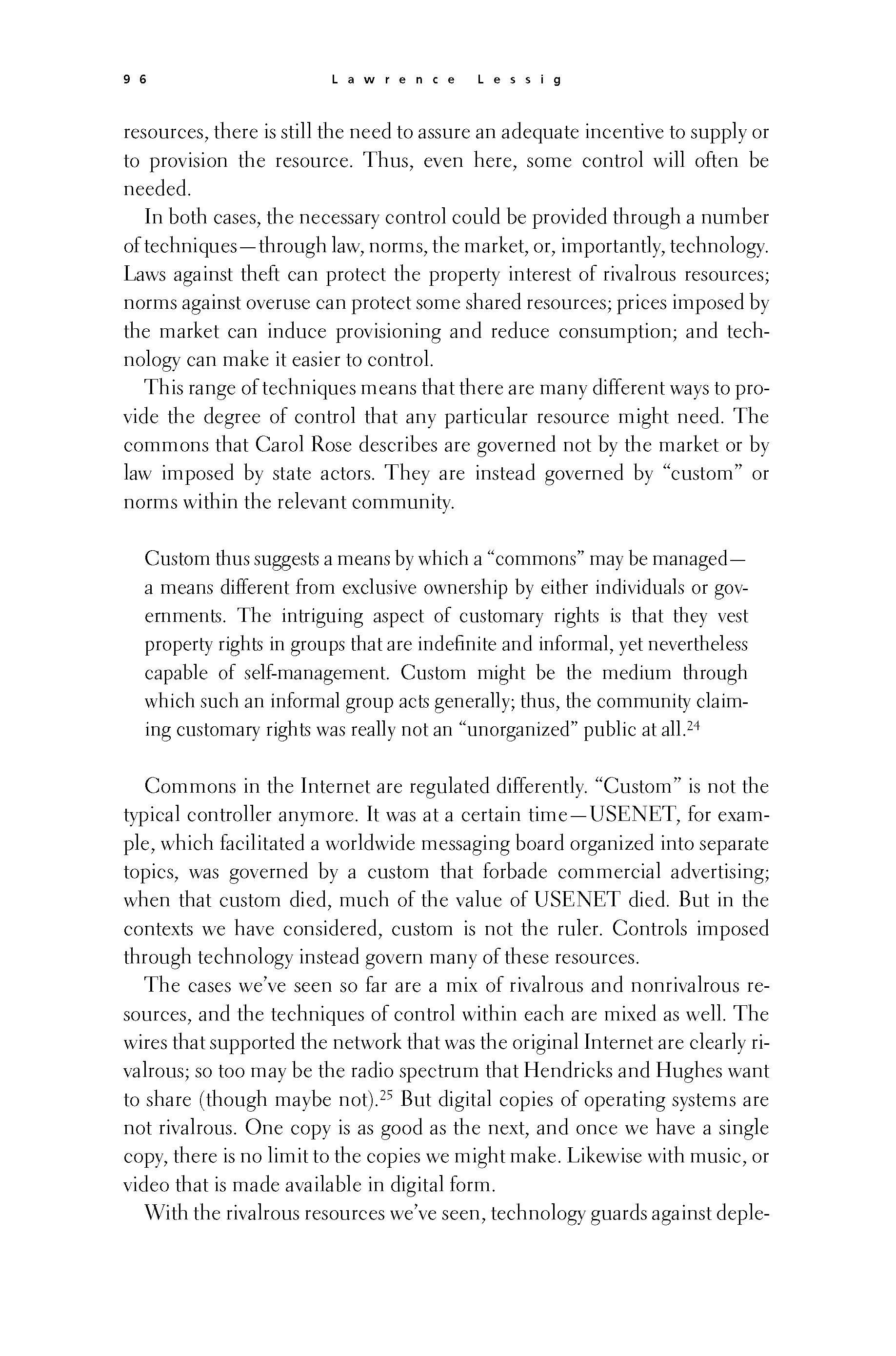 p095 _
-chap- _
toc-1 _
p096w _
toc-2 _
+chap+ _
p097
p095 _
-chap- _
toc-1 _
p096w _
toc-2 _
+chap+ _
p097
resources, there is still the need to assure an adequate incentive to supply or
to provision the resource. Thus, even here, some control will often be
needed.
In both cases, the necessary control could be provided through a number
of techniques -- through law, norms, the market, or, importantly, technology.
Laws against theft can protect the property interest of rivalrous resources;
norms against overuse can protect some shared resources; prices imposed by
the market can induce provisioning and reduce consumption; and tech-
nology can make it easier to control.
This range of techniques means that there are many different ways to pro-
vide the degree of control that any particular resource might need. The
commons that Carol Rose describes are governed not by the market or by
law imposed by state actors. They are instead governed by "custom" or
norms within the relevant community.
____ Custom thus suggests a means by which a "commons" may be managed --
____ a means different from exclusive ownership by either individuals or gov-
____ ernments. The intriguing aspect of customary rights is that they vest
____ property rights in groups that are indefinite and informal, yet nevertheless
____ capable of self-management. Custom might be the medium through
____ which such an informal group acts generally; thus, the community claim-
____ ing customary rights was really not an "unorganized" public at all.[6-24]
Commons in the Internet are regulated differently. "Custom" is not the
typical controller anymore. It was at a certain time -- USENET, for exam-
ple, which facilitated a worldwide messaging board organized into separate
topics, was governed by a custom that forbade commercial advertising;
when that custom died, much of the value of USENET died. But in the
contexts we have considered, custom is not the ruler. Controls imposed
through technology instead govern many of these resources.
The cases we've seen so far are a mix of rivalrous and nonrivalrous re-
sources, and the techniques of control within each are mixed as well. The
wires that supported the network that was the original Internet are clearly ri-
valrous; so too may be the radio spectrum that Hendricks and Hughes want
to share (though maybe not).[6-25] But digital copies of operating systems are
not rivalrous. One copy is as good as the next, and once we have a single
copy, there is no limit to the copies we might make. Likewise with music, or
video that is made available in digital form.
With the rivalrous resources we've seen, technology guards against deple-
[[96]]
p095 _
-chap- _
toc-1 _
p096w _
toc-2 _
+chap+ _
p097